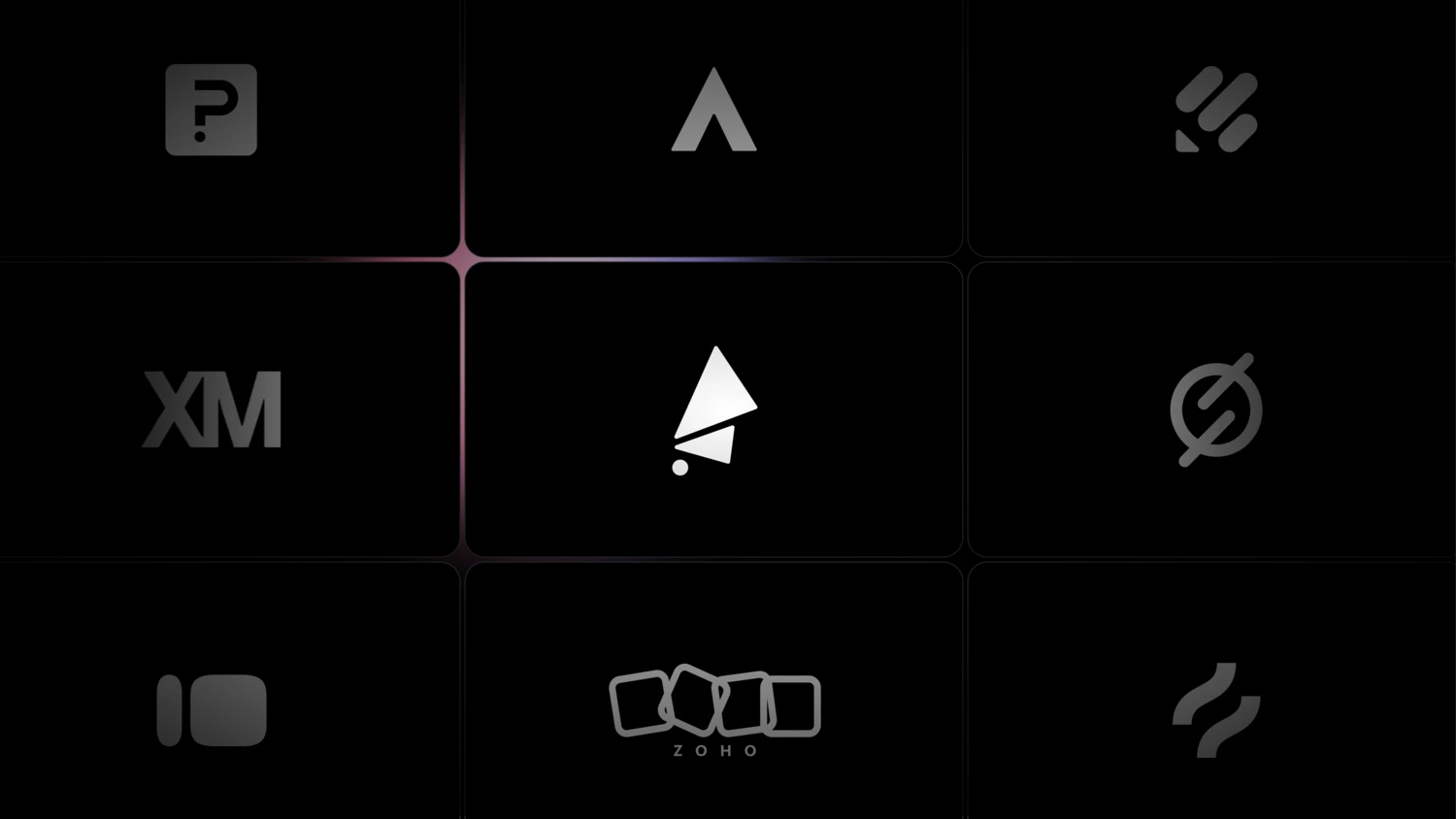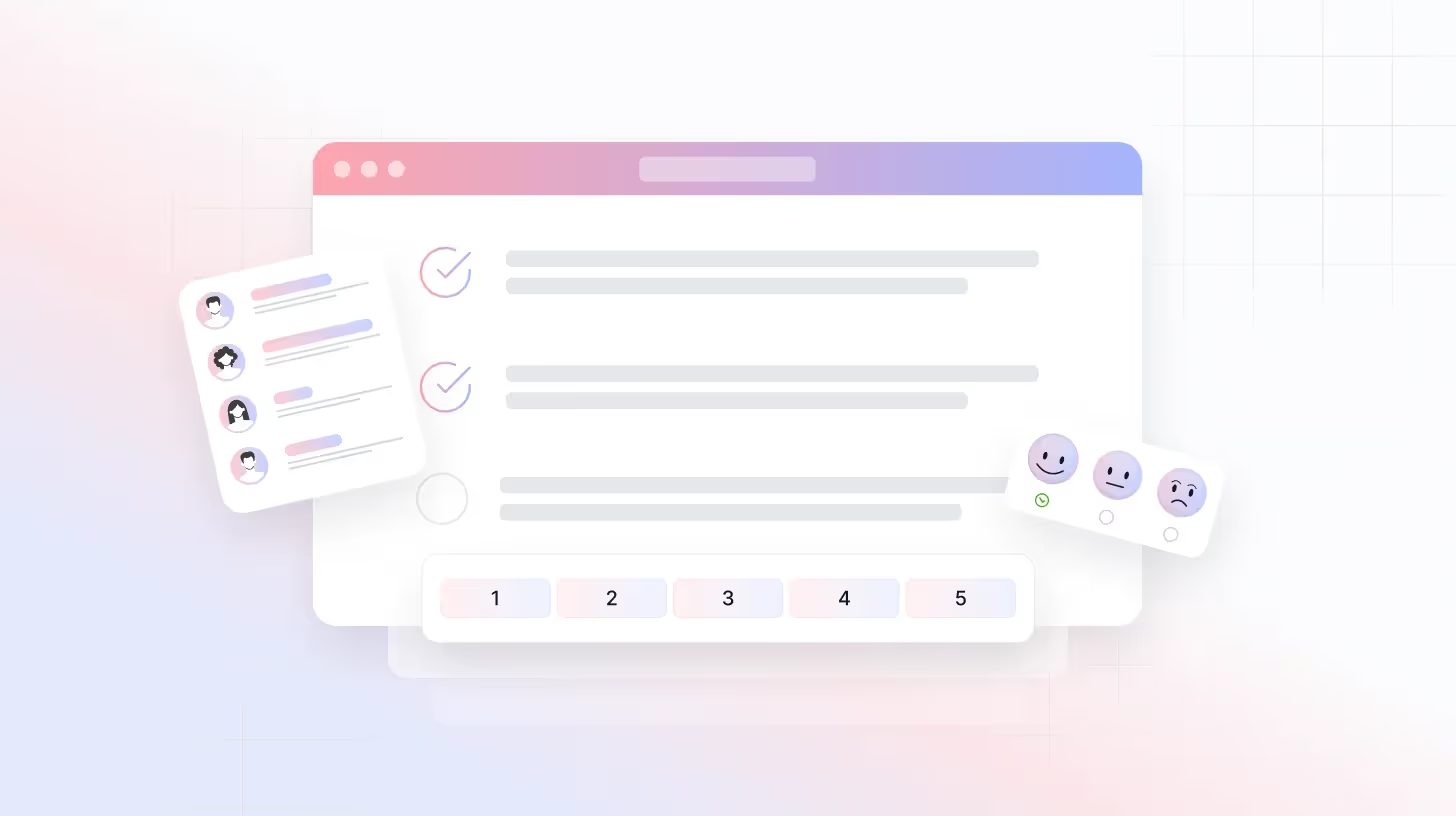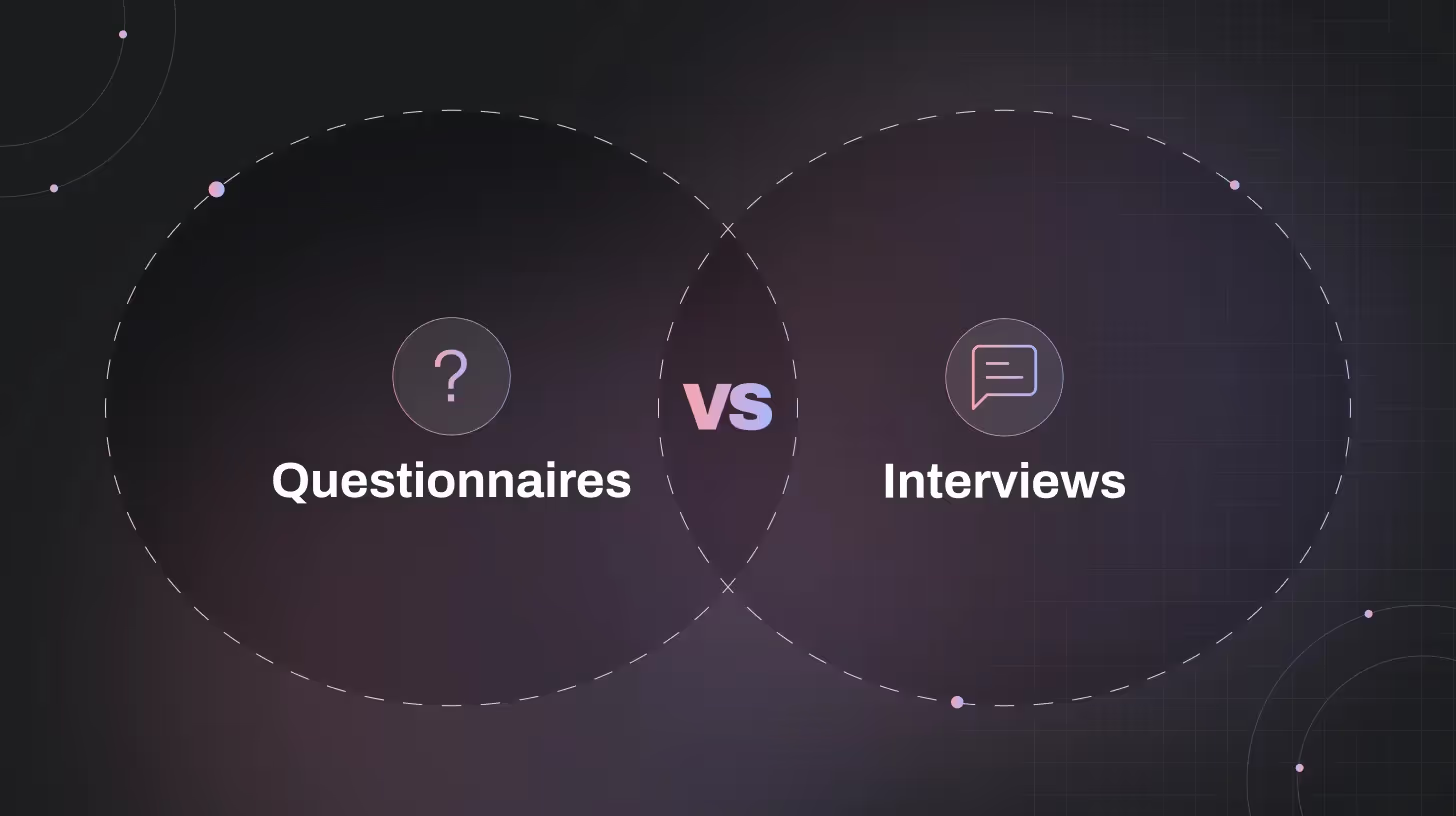20+ Diversity, Equity, And Inclusion Survey (DEI) Questions
%20Questions.avif)
When Salesforce’s executive team decided to run an internal DEI audit, they uncovered widespread gender pay disparities even in roles where men and women performed the same work.
In response, Marc Benioff, Salesforce’s CEO and co‑founder, committed to rectifying the issue immediately. “We leveled every job, every department… more than 10 % of our women got higher paychecks,” he shared. The transparent approach not only closed pay gaps but also reinforced a culture of fairness and accountability, earning trust across the organization.
Read the full story here.
In this blog, we’ll walk you through everything you need to know about DEI surveys, what they are, why DEI matters in the workplace, and the key questions you should be asking to create a more inclusive culture.
What is Diversity, Equity, and Inclusion?
Diversity, Equity, and Inclusion (DEI) are organizational frameworks that aim to promote the fair treatment and full participation of all individuals within an organization.
Diversity: Acknowledges the presence of differences within the organization. This includes race, ethnicity, gender, age, sexual orientation, disability, religion, education, socioeconomic background, and more.
Equity: It is about fairness and justice in processes and outcomes. It means recognizing that everyone has different needs and experiences and adjusting resources to address those differences.
Inclusion: It’s about creating an environment where everyone feels safe, valued, respected, and fully empowered. It’s about giving everyone a voice and making sure that voice is heard, considered, and included in decisions that shape the workplace.
What is DEIB
These days, you'll hear more about DEIB instead of just DEI. The ‘B’ stands for ‘Belonging’, which means employees don’t just feel included but fully accepted and connected to the workplace culture. It’s about being able to show up as your full self without fear or hesitation.
Did you know?
The Diversity, Equity, and Inclusion (DEI) sector is experiencing significant growth, expanding from $9.4 billion in 2022 to a projected $27.1 billion by 2030

Importance of DEI surveys in the workplace
According to the International Labour Organization, diverse and inclusive workplaces experience the highest revenue growth, greater innovation readiness, and more than five times higher employee retention.
Here’s how DEI surveys drive measurable impact:
Reveal Industry-Specific Blind Spots
Every industry has its own culture, pressures, and blind spots and what inclusion looks like in a hospital might be very different from what it looks like in a law firm or startup.
That’s why DEI surveys are so valuable. They help you see what you might be missing.
Take healthcare, for example. While it’s one of the most diverse workforces on paper, women of color and LGBTQ+ staff often face challenges others don’t see, like being passed over for promotions, dealing with biased patients, or feeling excluded from leadership conversations. Surveys give these employees a safe way to speak up and give leaders the information they need to build a culture that works for everyone, not just the majority.
Fuel Innovation and Growth
When people feel safe, they speak up. Diverse teams naturally bring different perspectives, solutions, and creative ideas to the table. A study by the Boston Consulting Group found that companies with more diverse leadership teams see 19% higher revenue from innovation. DEI surveys help identify whether employees feel comfortable contributing or if they’re staying quiet out of fear of judgment. That insight alone can transform your next brainstorming session, product launch, or strategic shift.
Track Real Progress
Most companies claim to value DEI. But how do you tell whether you're improving?
This is where surveys come in. They convert unclear goals, such as "be more inclusive," into quantitative outcomes, including how many employees feel like they belong, whether pay gaps are being reduced, and whether underrepresented groups are advancing at the same rate. It's the difference between saying "we think we're doing well" and demonstrating "we've moved the needle by 15% this year."
DEI Surveys enable you to benchmark, track trends, and make data-driven decisions, rather than relying on intuition or assumptions.
Build a Culture of Trust
When you ask people how they're doing and then follow up, you create trust.
DEI surveys provide employees with a safe environment in which to share experiences that they may not feel comfortable discussing publicly. When leaders respond with transparency and action, they convey a clear message: we're listening and working on it.
Trust grows when feedback isn’t just collected, but taken seriously.
Strengthen Legal & Ethical Accountability
Beyond culture and performance, DEI surveys can help your organisation stay compliant and ethical.
They assist you in complying with equal opportunity laws, labour standards, and ESG disclosure requirements. Furthermore, they demonstrate to stakeholders that your commitment to equity is not a performance metric, but rather a component of your operational strategy.
For example, a tech company preparing for an IPO may utilize DEI survey data to demonstrate to regulators and investors that it is reducing bias in hiring and improving gender balance at the leadership level.

20+ DEI Survey Questions for Employees
Here’s a curated set of 20+ thoughtfully written, conversational DEI questions covering Diversity, Equity, and Inclusion.
Diversity Questions
1. Are people of different backgrounds fairly represented across our company?
You might think your team is diverse, but what truly matters is how it’s perceived by the people living it day-to-day. This question reveals whether diversity exists at all levels of departments in an organization.
2. Have you ever felt like you didn’t fully belong here because of your identity (e.g., race, gender, religion, age)?
No one wants to feel like an outsider at the workplace. This question fosters a safe environment for employees to share their personal experiences and helps leaders understand what true inclusion truly looks like.
3. Do you feel your unique background or perspective is valued in your team?
This question helps assess whether team members feel their differences are appreciated, not just tolerated. It also highlights how inclusive the team culture is in practice.
4. On a scale of 1 to 10, how diverse do you think our leadership team is?
Responses to this question reveal how employees perceive representation at the top. A lower score indicates a disconnect between leadership and the broader workforce.
5. Can you share a moment when you felt diversity was truly celebrated in our company?
If employees can recall specific, positive moments, it signals that DEI efforts are resonating. It may also highlight best practices within individual teams.
6. Have you ever witnessed or experienced unconscious bias or discrimination within our workplace?
Rather than broadly asking about unconscious bias, this version personalizes the question, allowing employees to share meaningful experiences.
Equity Questions
7. Do you believe our leaders are committed to workplace equity
This question helps you determine whether employees believe leadership walks the talk or if equity is simply a slogan.
8. Have you seen favouritism in terms of promotions, initiatives, or recognition?
Favoritism can silently erode trust, especially if the same people consistently receive opportunities. This question opens the door for employees to flag imbalances that might not be obvious from the top down.
9. Have you ever seen or experienced a situation where someone at work wasn’t treated fairly?
Sometimes inequity shows up in small moments, who gets support, who gets the credit, and who gets left out. This question invites people to share those moments, honestly.
10. How confident are you that our company is addressing issues like pay equity and salary transparency?
Pay equity is more than a spreadsheet; it’s about whether employees trust the process. This question helps measure that trust.
11. On a scale from 1 to 10, how would you rate our company’s efforts to make things more equitable?
It’s a quick pulse check. Follow it up with a space for ideas: “What’s one thing we could do better?”
12. Are promotions and performance reviews handled fairly across the board?
Bias can subtly influence who advances. This question checks whether employees believe that recognition and advancement are earned fairly.
13. How transparent do you think our company is when it comes to sharing salary bands or the process of making pay decisions?
Transparency builds trust. This question assesses whether employees feel informed or uninformed.
14. How can we strengthen our equity efforts?
Ending with an open-ended question allows employees to share honest, thoughtful suggestions for improving equity across the organization.
Inclusion Questions
15. Do you feel a real sense of belonging here at work?
This question gets to the heart of the matter of inclusion. Do people feel like they’re part of the team, or just sitting on the edge?
16. How comfortable do you feel speaking up in meetings or sharing your ideas with the team?
If people hesitate to share, they might not feel psychologically safe. This question helps you gauge that comfort level.
17. Have you seen or experienced moments where someone was left out or treated differently?
Inclusion also means noticing when it’s not happening. This question gently opens the door for employees to speak up about exclusion or unfair treatment.
18. What’s one thing our company has done recently to support inclusion that you appreciated?
This question helps surface what’s actually working, so you can do more of it.
19. Do you have any suggestions for making our workplace more inclusive and welcoming for everyone?
Let people share real ideas, not just feedback. You might hear ideas about space setup, holidays, communication styles, or team bonding.
20. Do you feel like your strengths and talents are truly recognized and used here?
Being included isn’t just about being present, it’s about being valued. This question checks if people feel seen for what they bring to the table.
21. Have you ever felt uncomfortable being open about your sexual orientation or gender identity at work?
Not everyone feels safe being their full self. This question lets people reflect on that privately and honestly.
22. Do you think our company supports employee resource groups or communities that help people connect and feel included?
Support networks matter. Whether formal (like ERGs) or informal (like Slack groups), this question checks if those safe spaces exist and if people know they do.
Read - Inclusion Survey Questions to Promote Workplace Diversity
Create DEI survey Questions with TheySaid
Creating effective and insightful DEI survey questions can be challenging, but tools like TheySaid make the process easier and more impactful.
TheySaid helps you collect honest, unfiltered feedback through AI-powered conversations that feel natural to your team. With smart summarization, sentiment analysis, and deep insights, you get a clearer picture of how employees really feel about diversity, equity, and inclusion.
Request a demo to start building a more inclusive, transparent, and equitable workplace with TheySaid.
Key Takeaways
- Run a DEI audit regularly to uncover hidden pay or promotion gaps.
- Use surveys to track real employee sentiment, not assumptions.
- Ask specific, not generic, DEI questions to get meaningful insights.
- Follow up on survey results to build trust and show accountability.
- Benchmark DEI progress with measurable outcomes like belonging and pay equity.
- Create safe spaces where employees can share lived experiences anonymously.
- Use inclusion questions to check if people feel heard, not just present.
- Evaluate how transparent and fair your promotion and review processes really are.
- Use DEI feedback to improve hiring, retention, and team collaboration.
- Leverage tools like TheySaid to automate DEI insights and drive smarter action.
FAQs
What types of questions are included in a DEI survey?
Questions typically cover diversity (representation), equity (fairness in opportunity and pay), inclusion (belonging and voice), and sometimes belonging and accessibility.
What are DEI climate survey questions?
They measure how employees feel about diversity, equity, and inclusion at work, helping you understand your workplace culture beyond the numbers.
Why ask demographic questions in DEI surveys?
They show how different groups experience your workplace, helping identify gaps and make improvements that support everyone.














.svg)